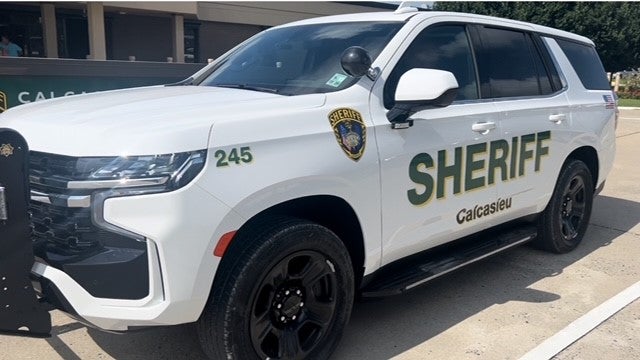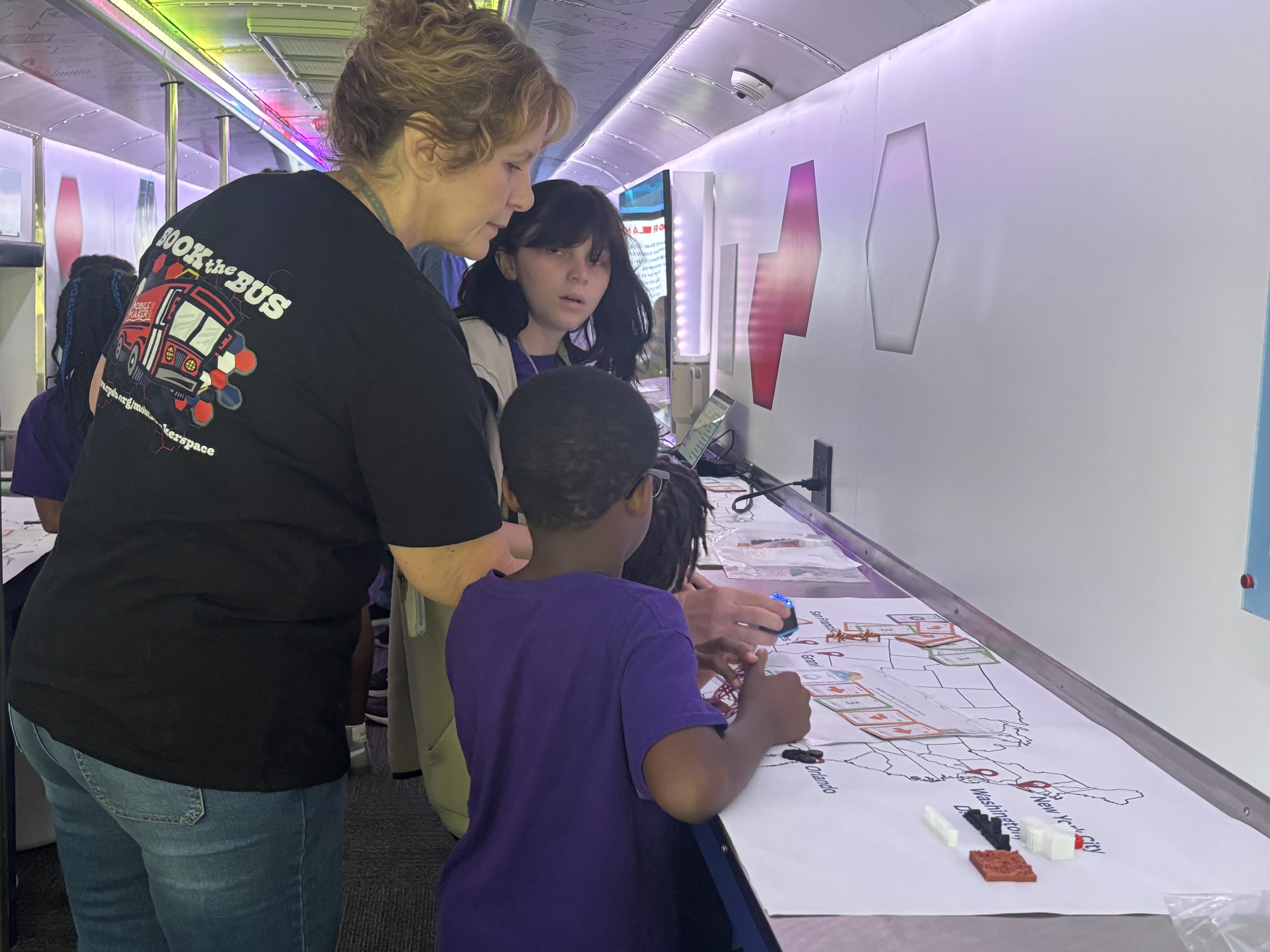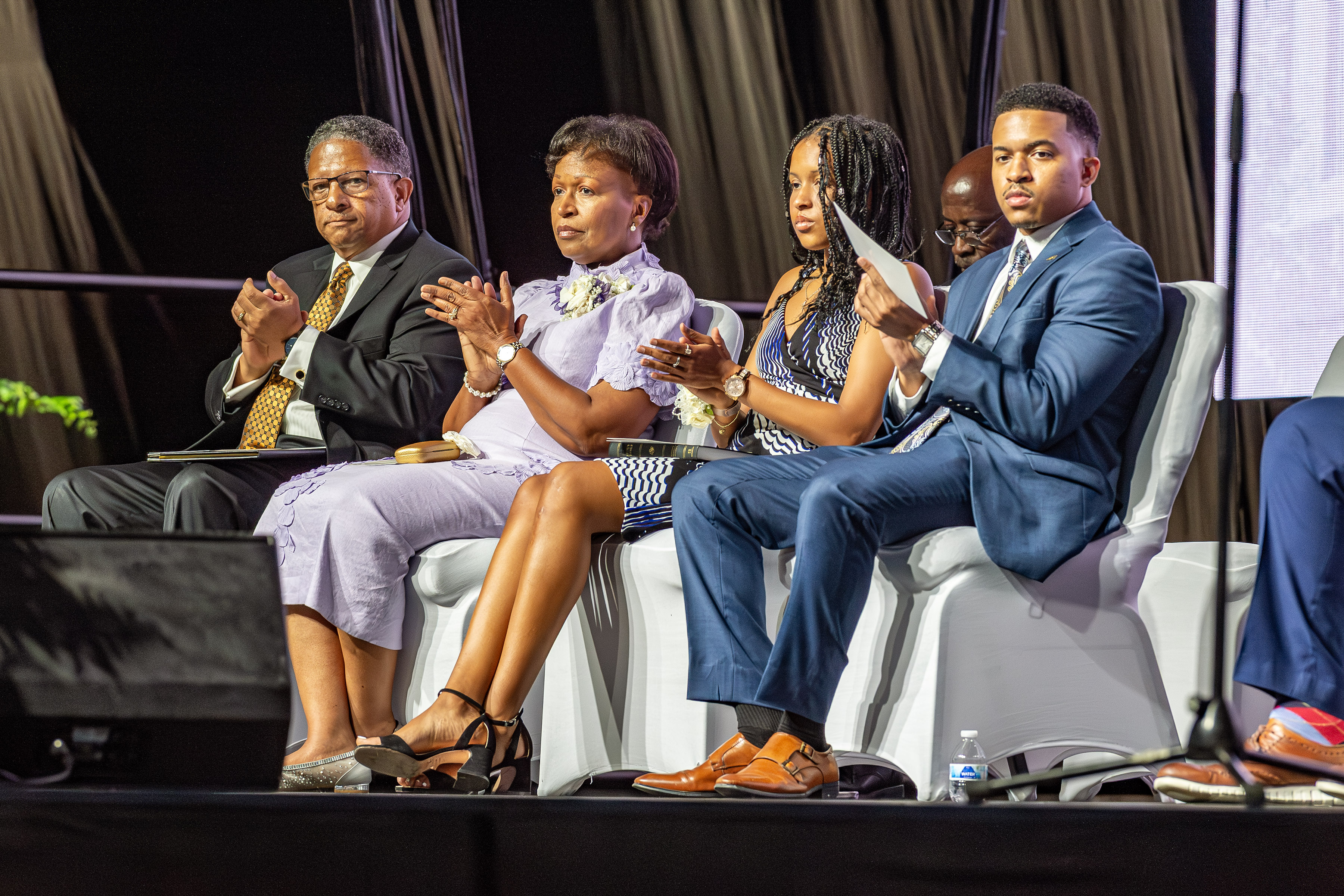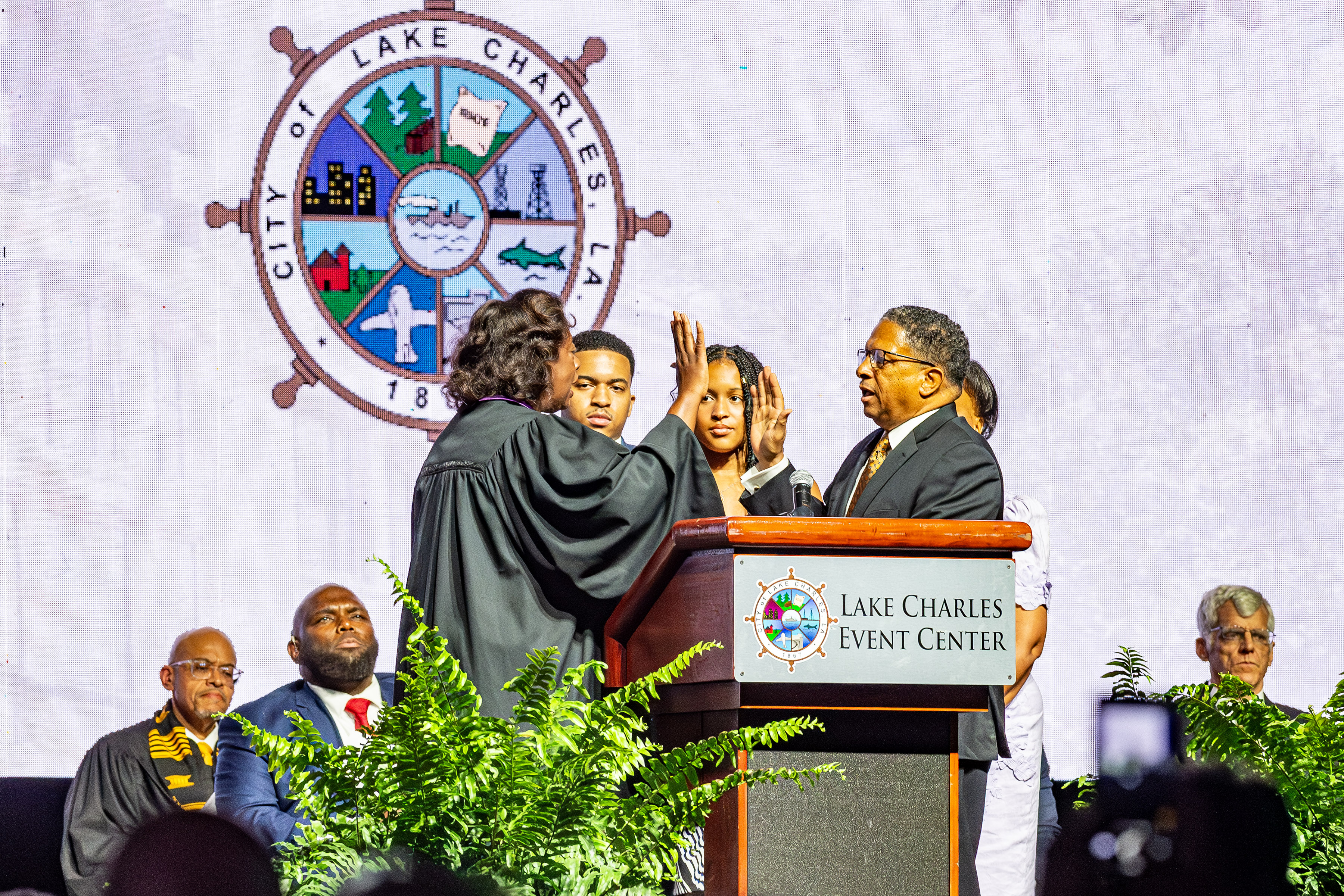UPDATE: P3 proposal for I-10 bridge replacement shot down
Published 5:47 pm Tuesday, October 24, 2023
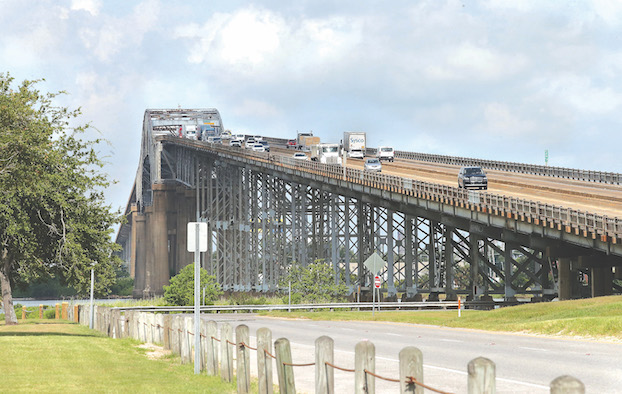
- (Donna Price / American Press)
Despite warnings from Department of Transportation and Development Secretary Eric Kalivoda, the State Joint Transportation Committee has voted down a motion that would have allowed the DOTD to enter into a Public, Private Partnership (P3) for the Interstate 10-Calcasieu River Bridge replacement.
The committee received a letter from Southwest Louisiana delegation stating they were against the toll project. It was signed by Reps. Mike Reese, Jeremy Stine, Mark Abraham, Les Farnum, Ryan Bouriaque, Phil Tarver, Brett Geymann, Troy Romero and Dewith Carrier. Wilford Carter was in favor of moving forward with the P3.
“This has been on the plate the entire four years I have been here,” Farnum said. “Before you toll something, you have to find out if you can afford it or not. Until you’re told what this bridge costs, you cannot vote for it. The cost is said to be $2-$1 billion but so much escalation and contingency money is in that contract, we have no idea what the bridge costs. Washington has been making decisions like this for decades and I am not willing to do that. I want to know what this bridge costs and whether we can afford it or not. It’s the Calcasieu River. You can swim across it. It’s not the major undertaking it’s portrayed to be.”
Kalivoda listed the consequences of not moving forward. It would set up the incoming administration for failure. Committee members would lose highway and bridge funds in their district. A design and build, pay-as-you-go project with public tolling would not be ready until 2051 at the earliest.
He reminded the committee about the $2.7 million cancellation stipend already paid to one of the bidders and the additional $2.7 billion that would be paid to Calcasieu River Bridge Partners if this proposal did not advance. American Rescue funding would be lost, and “nobody in the private sector will come forth if it ends up being canceled,” ruining the prospects for not only the Calcasieu River Bridge but other projects such as the I-10 Baton Rouge.
“When the Congressional delegation said they’re going to get the money, I would ask them when that testimony occurred and specifically what they said so that voters hold them accountable at election time if they fail to deliver,” the Secretary said.
Senate Chair Sen. Patrick McMath said he was “disturbed somewhat by what seemed to be a threat.”
“I think everyone understands we are held accountable by the people we represent. In fact, it’s quite frankly the reason why we’ve had so many questions and want to make sure we’re getting the best value for the citizens of the state.”
House Chair Rep. Mark Wright said presenting the idea that the committee was all of a sudden going to blow this up was a”big mistake.”
“If we’re going to the press to hold me accountable, come find me wherever. I will always be accountable,” Wright said. “Legislators have always been part of this since two years before the bid, and that was always going to be a part of it. And any government affairs work that did not include that as part of the conversation was poor.”
Wright recalled his first roadshow meeting in Lake Charles when he was told by the local delegation that they were not interested in “doing this toll thing.”
At that time, the state was looking for pennies under the couch, not seeing surpluses. He remembered disinterest on the part of the DOTD to work out the challenge with Senate President Cortez.
“I’m not saying we were blown off,” Wright said, “but this kind of communication and all of a sudden, we’re the problem.
He told Kalivoda that it would have been good to know about the opportunity to rehabilitate the bridge for $200 to $300 million that the legislators learned about during its last Joint Committee meeting, before it had to give away billions for stipends.
The Calcasieu River Bridge was built in 1952 and incorporated into the Interstate System to save money when the system was built in the 1960s. The State has been pursuing replacement since the 1990s, and in 2017, a bill to increase the fuel tax to fund such projects failed to make it through the House.
A feasibility study was conducted in 1996, and didn’t advance because of discussions of the bridge eight and environmental contamination.
Kalivoda said the new, modern bridge would be transformational. $800 million was available from the public sector from grants, Rescue Fund, six years of vehicle tax, bonds and priority and state general fund. The design and construction cost $2.1 billion and tolls over the next 50 years, about 25 cents for local cars. Truckers would pay upwards of $12.50. $800 million is available from the public sector.
No other action was taken regarding the project at the hearing. The House Committee members voted nine to six against the project after a motion to defer or delay the vote failed. The project required the approval of both the House and Senate members.


